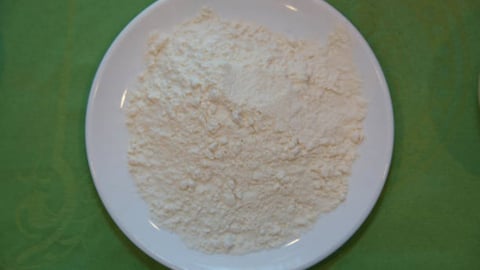Isavuconazole: A Comprehensive Guide to Uses, Side Effects, and Dosage

Introduction:
Isavuconazole is a medication used to treat serious fungal infections. It belongs to the class of drugs known as triazoles and works by preventing the growth and spread of fungi in the body. This article aims to provide a comprehensive guide to Isavuconazole, including its uses, side effects, and dosage.
1. What is Isavuconazole?

Isavuconazole is an antifungal medication that is used to treat certain types of invasive fungal infections, including invasive aspergillosis and invasive mucormycosis. It is available in both oral and intravenous forms and is approved by the FDA for use in adults.
2. How Does Isavuconazole Work?

Isavuconazole works by inhibiting the synthesis of ergosterol, a key component of the fungal cell membrane. By disrupting the cell membrane, Isavuconazole prevents the growth and spread of fungi, ultimately leading to the death of the fungal cells.
3. Uses of Isavuconazole

Isavuconazole is primarily used in the treatment of invasive fungal infections, including:
- Invasive aspergillosis: This is a serious infection caused by the fungus Aspergillus, which primarily affects individuals with weakened immune systems.
- Invasive mucormycosis: This is a rare but life-threatening infection caused by the Mucorales fungi, which can affect various parts of the body, including the lungs, sinuses, and brain.
4. Isavuconazole Dosage

The dosage of Isavuconazole depends on various factors, such as the type and severity of the fungal infection, the patient's age, weight, and overall health condition. It is important to follow the prescribed dosage instructions provided by your healthcare provider or pharmacist.
For oral use, Isavuconazole is available as capsules and should be taken with a full meal to enhance absorption. The recommended dose is usually 372 mg (equivalent to 200 mg of Isavuconazonium sulfate) every 8 hours for the first 48 hours, followed by 372 mg once daily.
For intravenous use, Isavuconazole is administered as a slow infusion over 1 hour. The recommended dose is usually 372 mg every 8 hours for the first 48 hours, followed by 372 mg once daily.
5. Side Effects of Isavuconazole
While Isavuconazole can be an effective treatment for fungal infections, it may cause certain side effects. Common side effects of Isavuconazole include:
- Nausea
- Vomiting
- Headache
- Abdominal pain
- Diarrhea
- Abnormal liver function tests
It is important to inform your healthcare provider if you experience any persistent or severe side effects while taking Isavuconazole.
6. Precautions and Warnings
Before starting Isavuconazole treatment, it is important to inform your healthcare provider about any pre-existing medical conditions, allergies, or medications you are currently taking. Isavuconazole may interact with certain medications, including certain antifungal drugs, anticoagulants, and certain medications used to treat heart conditions.
Isavuconazole should be used with caution in individuals with liver or kidney problems, as it can affect liver function and may require dose adjustments.
7. Drug Interactions with Isavuconazole
Isavuconazole may interact with certain medications, leading to potentially harmful effects. Some medications that may interact with Isavuconazole include:
- Warfarin and other anticoagulants
- Rifampin
- Phenytoin
- Carbamazepine
- Rifabutin
- Calcium channel blockers
It is important to inform your healthcare provider about all the medications you are currently taking to avoid any potential drug interactions.
8. Isavuconazole and Pregnancy
Isavuconazole should be used during pregnancy only if the potential benefits outweigh the potential risks to the fetus. It is important to discuss the potential risks and benefits of using Isavuconazole during pregnancy with your healthcare provider.
9. Isavuconazole and Breastfeeding
It is not known whether Isavuconazole passes into breast milk. Breastfeeding mothers should consult their healthcare provider before using Isavuconazole to assess the potential risks and benefits.

10. Conclusion
Isavuconazole is an antifungal medication used to treat serious fungal infections, such as invasive aspergillosis and invasive mucormycosis. It works by inhibiting the growth of fungi, ultimately leading to their death. While Isavuconazole can be effective, it may cause side effects and interact with certain medications. It is important to follow the prescribed dosage and inform your healthcare provider about any pre-existing medical conditions or medications you are currently taking.

